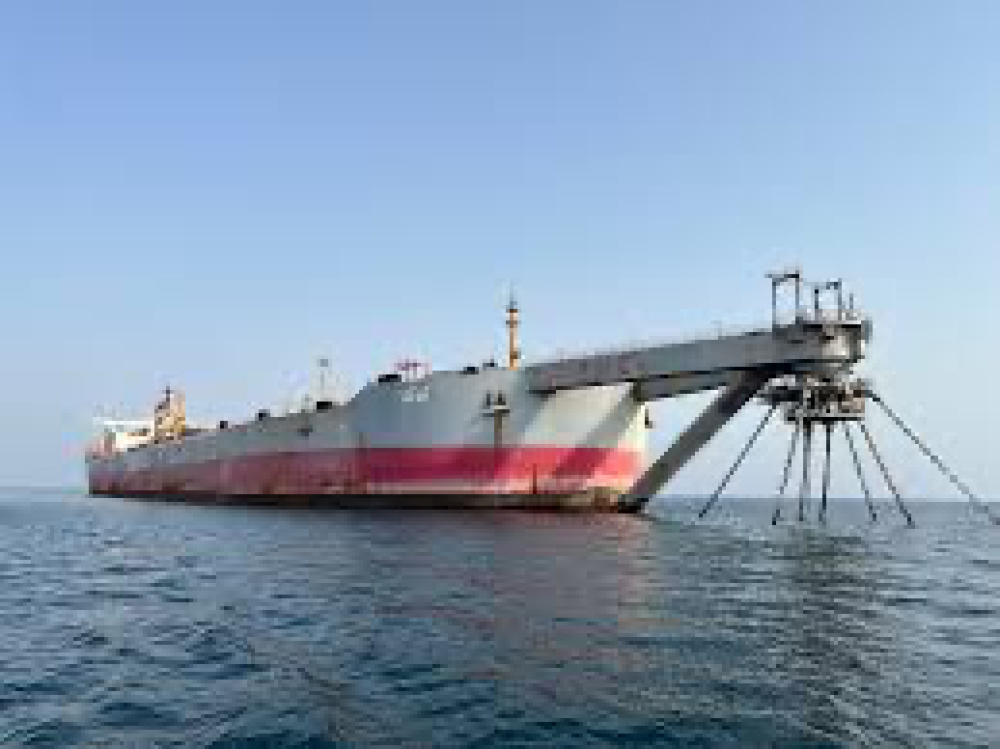FSO Safer: Ship-to-ship transfer of oil underway


The ship-to-ship transfer of more than 1.1 million barrels of oil from the decaying floating storage and offlading unit FSO Safer to a replacement tanker, the Yemen (formerly known as the Nautica), has begun. Pumping began at 10.45 hours (local time) on 25 July 2023. The operation, which is continuing 24 hours a day, is expected to take between two and three weeks to complete. The transfer follows detailed work to inspect and stabilise the Safer and its cargo.
IMO is playing a key supporting role in the United Nations-coordinated initiative aimed at preventing an oil spill from the FSO Safer, which is moored off the coast of Yemen.
Under the UN initiative, the marine salvage company SMIT, a subsidiary of Boskalis, was contracted to inspect and ready the FSO Safer and carry out a ship-to-ship transfer of the oil.
IMO is providing technical support and has contracted a Crisis Management specialist to be onsite for the length of the operation. While the operation carries risks, there has been extensive contingency planning. As part of this process, IMO has assisted UNDP with the arrangement of the procurement and commissioning of specialized oil spill response equipment to mitigate a spill of oil. In addition to the procurement process, IMO has requested and been facilitating donations of equipment.
Latest update:
25 July 2023 - SMIT began the transfer of oil from the FSO Safer to the replacement vessel Yemen. The transfer should be completed in less than three weeks.
Once the ship-to-ship transfer operation is over, the next critical step will be the instalment of a mooring point attached to the pipeline to which the Yemen can then be safely tethered. The aim is to complete this work by September when the weather in the region is expected to worsen.
Negotiations continue to resolve legal issues concerning the safe recycling of the FSO Safer and the future sale of its oil.
The oil recovery operation.
Boskalis’ multipurpose support vessel Ndeavor was moored alongside the FSO Safer following its arrival at the site on 30 May with equipment and the SMIT team onboard. They boarded the FSO Safer the following day. Gas measurements were taken to assess the presence of toxic gas in and around the vessel. The team declared it "safe to access" which meant that critical inspections of the FSO and its deck machinery could be conducted, along with assessments of the structure of the hull.
Mobile inert gas generators were loaded onboard for use in the operation to inert the FSO Safer's oil tanks in readiness for the oil transfer operation, and an inspection of the manifold on board the FSO took place. A mobile fixed staircase was built to facilitate easy and safe access between the Ndeavor and the FSO Safer.
The SMIT team conducted an on site inspection and test of oil spill response equipment including dispersant sprays arm mounted on the supply vessel, the SL Manakin. It and the SL Aden are anchored near the Safer.

Aden — Yemen’s Presidential Leadership Council Chairman Rashad al-Alimi has commended the efforts of Saudi Arabia and the United Arab E…

Sana’a – The Houthi-run Special Criminal Court in Sana’a has continued the trial of several former employees of the U.S. Embassy,…

Aden – Southern Transitional Council (STC)-affiliated forces on Saturday rejected accusations issued by Yemen’s General Staff, which cl…